Emma Cummings, co-founder of Arise Home Education and Maths and English Literature tutor, was so dissatisfied with the options for the high school English iGCSE. Here, she explains the challenge many of us face and how Arise Home Education can help your teen find success if sitting the Cambridge iGCSE English exam.
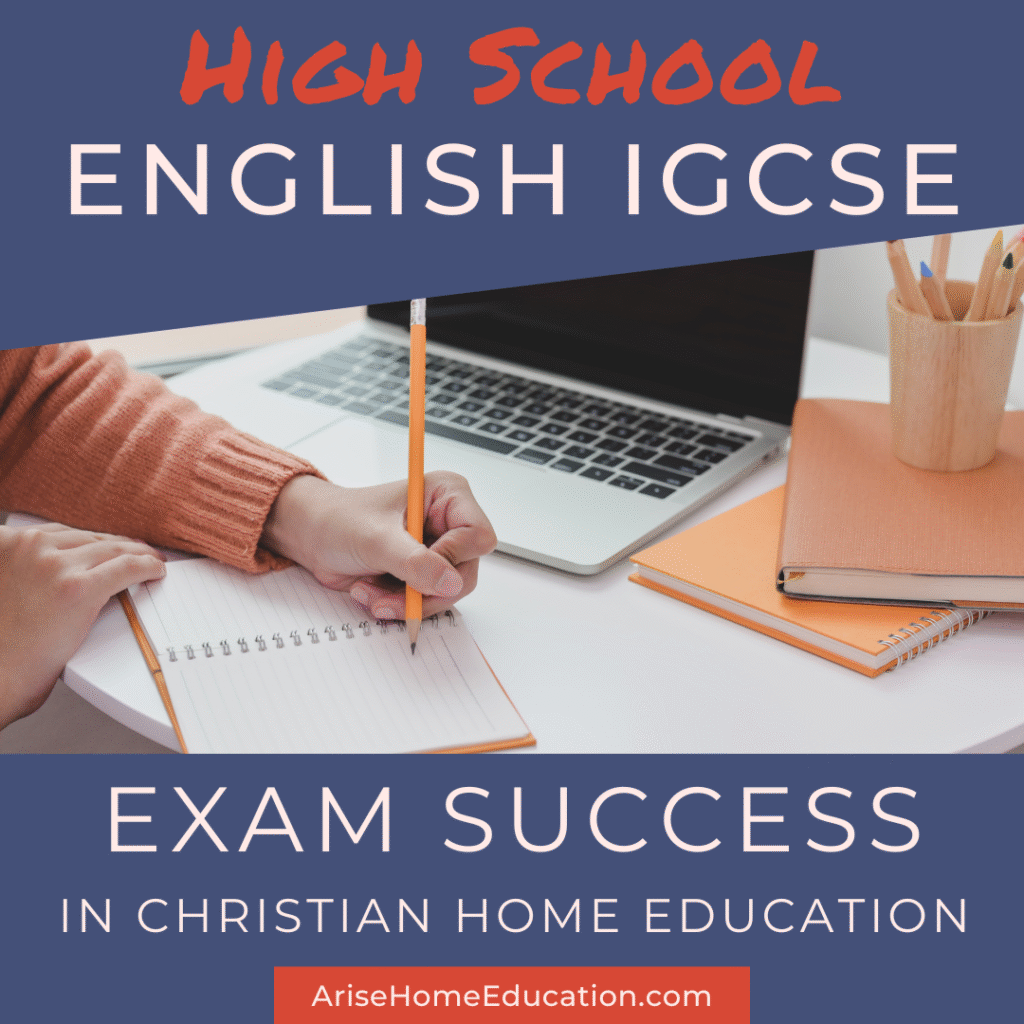
As a teen, I just couldn’t “get” English. It seems like a subject that you were either good at or not good at. When it came to revision, it was hard to know how. Maths was easy to revise for: you want to improve trigonometry, look at the rules, the steps, and practise them. English seemed so… subjective! As a home educator, it became clear to me that my time in education was a bit of a low point in English education. From day 1 at primary school, we were taught to read using the whole word method, and grammar instruction was non-existent. It was not until I was 15 did I learn that the dot-comma thingy was called a semicolon. It was truly shocking.
As a home educator, I wanted a different type of English education for my children. I wanted to give them a strong foundation. Ironically, my eldest daughter was just that kind of child who “got English”. Even so, I determined that focusing on being rigorous in phonics, grammar, and punctuation was key. Our days were spent with rich, quality literature. With my sons, this continued. They were not children who “got English”. But they have been given, and continue to be given, a toolkit for success in English, which does not seem to be some mysterious thing that is unattainable to them.
When it came to studying for the high school English iGCSE, I honestly felt rather daunted. Even with my daughter, the old fears of how to prepare for an English exam returned. But now I was armed with years of quality English under my belt. Now I had the exam spec, the textbooks, and more importantly, a systematic approach to teaching English with my children. I had taught them, not in some magical, mysterious way, but with the same systematic approach I gave to mathematics. From this was born the Arise British Literature Year 1 and Year 2: taking the skills required for success in the iGCSE English Language (using the Cambridge Exam board spec).
Uniquely, our goal at Arise Home Education is to equip teens for an exam, but not to sacrifice the Christ-centred approach to education.
Laying a Solid Foundation
I would say an essential key to academic excellence is a rich store of good-quality literature. Read to your children. Read widely and richly. Choose those books that expose them to a broad vocabulary. But beyond the nuts and bolts of good English, read to them books which are full of beauty, truth, and goodness. Enjoy literature where there are heroes to emulate and where the moral principles of the Bible are upheld. Reading has been proven to improve empathy.
Once children are reading alone, continue to read together and discuss literature. Listen to podcasts and audiobooks. Creating a word-rich environment is unbelievably important. Even in the early years of a child’s life, it makes a difference. By the age of 3, there is a 30 million word gap between children from more deprived backgrounds and those from more affluent backgrounds. A more subtle and overlooked aspect of educating readers is to model reading. If you want to raise readers, model being a reader.
In the primary years, focus on those skills of basic grammar and simple punctuation. Work on doing the basics well. For children with learning challenges, like dyslexia, this can be a slow process. A way to mitigate the challenges this can cause later is to make reading aloud a priority. One of the reasons dyslexic children do not attain higher English grades in high school is that they have not had the same richness of literary experience as their peers who read well in primary school. If your 8-year-old cannot read The Chronicles of Narnia for themselves, read it to them, or use an audiobook. Listening to books has the same cognitive benefits are reading!
Great Pre-iGCSE Resources
For lower high school/upper primary school (middle school in the US), there are fantastic resources to help prepare for high school English iGCSE level of work. For my children, the foundation laid with IEW and Lost Tools of Writing was invaluable when we were preparing for the iGCSE examinations. This is why when Arise was building a pre-iGCSE English class, we decided to utilize the IEW resources, and we built the course on those key writing skills and grammar.

iGCSE English Language (Cambridge)
The International General Certificate of Secondary Education (iGCSE) is an internationally recognised qualification, used around the world. One of the surprising aspects of the specification is that it can be studied without a student needing to read a book, play, or study poetry. Cambridge has a separate iGCSE English Literature exam for this.
As Christians, many of the texts that are given in lists for examination do not align with our Christian values. Therefore, the lack of set texts is an advantage in the iGCSE English Language (Cambridge) Syllabus. What the course focuses on is skills.
- Reading: The reading component requires students to be able to read and understand a text. A large part of this is being able to identify the explicit and implicit meaning in a text. It is important that parents understand this examination is designed for 16-year-olds to sit. As a result, part of this comprehension comes with natural brain development. However, with a rich background of reading quality literature, this skill can be nurtured. Neurodivergent teens will find the ability to derive implicit meaning more challenging, and it may be wise to give them longer before taking the exam. Related to this is the ability to recognize facts, opinions, and bias in a text. Teens will also be expected to be able to recognise how a writer creates effect using language, literary devices, and punctuation.
- Writing: Teens’ writing skills are also tested both informatively and imaginatively. They are tested to be able to write in the correct form, with the correct tone, using appropriate language for the given task. This also involves being able to select information and order it in an appropriate way. The forms of writing which are required are: persuasive, argumentative, or discursive writing, and narrative or imaginative.
Arise Home Education offers excellent preparation courses for the Cambridge iGCSE English Language exam, that lay a strong foundation for Literature study and advanced study of English. They do so in a Christ-centred way, with world-class literature at its very heart.
How to Prepare for High School iGCSE English Success
Honestly, when, as a family, we studied for the iGCSE English Language exam, we found the Cambridge textbook boring! This led to the building of British Literature and Writing Composition at Arise. The treasure of rich literature we had studied for years was the best source of material to teach reading comprehension. By taking texts which are regularly set for Literature examinations, I built a course to teach all these key skills, which are based on the core curriculum. We take The Merchant of Venice and Pride and Prejudice in Year 1; in Year 2, we take Great Expectations, Mere Christianity, and the Screwtape Letters. From these we:
Learn to summarize information.
This teaches how to glean the key points in a text and order them appropriately. Teens who have grown up with a Charlotte Mason background will find this quite natural if they have years of narration behind them.
Teens look at vocabulary in the text and consider the meaning of the words.
If a student doesn’t know the meaning, can the context help us work it out? These kinds of analytical skills are often tested in the exam.
Students identify the use of a very broad range of literary devices.
Throughout our study of the texts and the poetry, we identify the use of a very broad range of literary devices and discuss how they work together to create a sense of place or atmosphere. The study of Dickens’ Great Expectations is a master class in how to do this.
Students spend time considering facts, opinions, and bias.
When looking at Mere Christianity, we spend time considering facts, opinions, and bias. This is taken a step further to consider the use of propaganda. Lewis’s intellectual integrity lends itself beautifully to this exploration and opens up the discussion of how these can be identified within our own culture. The study of CS Lewis will challenge any teen’s critical thinking skills and bring an intellectual and spiritual depth that is impossible to find in any secular iGCSE course.
Students use the texts as a vehicle to inform their writing.
Students learn the difference between purely imaginative writing (basically describing a scene) and narrative writing (creating a story). This can be taking images of Venice and writing about them, or crafting a short story inspired by Pride and Prejudice. When teaching these different, but similar forms of writing, there is an equipping of tools. Good imaginative writing does not just happen.
At Arise, we teach teens to be purposeful in choosing different literary devices to create atmosphere or strong imagery. In narrative writing, they focus on creating a simple story, well written, with strong character development. The unique focus on Shakespeare, Austen, and Dickens allows teens to study how very different writers craft strong characters, using vastly different techniques.
Teens learn how to write in different forms and for different audiences.
There are various writing exercises, from newspaper articles, letter writing, and speech writing. Special attention is given to choosing the right form for the job!
There is a lot of time given to writing persuasively, comparatively, discursively, and argumentatively.
We look at the rhetorical devices for good persuasive writing in all its forms. The formal essays of this kind are the culmination of the study of different texts. But they also inform how to craft a speech or a newspaper article. As a tutor, it has been a delight to read students’ essays where their personal style shines through.
Creating an objective method.
This is done by creating basic essay frameworks for the different forms. Instructing how to take a question and craft an opening sentence that leads to a strong introductory paragraph, how many of us have waffled our way through English essay introductions? Using the PEE (Point, Evidence, Explanation) method of analysing a text, finding the evidence, and then how to use that evidence in an answer. These methods allow a teen who is not naturally good at English to have a toolkit to approach crafting quality answers.
Uniquely, our goal at Arise Home Education is to equip teens for an exam, but not to sacrifice the Christ-centred approach to education.
As a family that has placed quality literature, with godly values at the centre of our children’s education from a very young age, we want to maintain this through the teen years, and achieve academic success. As I have seen with my own children, this approach has been an excellent preparation for an examination, but more importantly, it is an excellent preparation to be able to think critically, have high-quality communication skills, and do well in higher educational institutions.
Reclaiming a Generation’s Education
In an age where Universities are reporting students in English Literature degrees unable to read full texts, this approach gives students a strong academic foundation. It was once common for teens to read Dickens, Austen, Brontë, and Shakespeare in school. However, this is becoming less common. We can raise children for whom this is not unusual. CS Lewis was a passionate believer in the reading of old books. This was not because he was anti-modern, but he believed it was proud of us to think we could not benefit from learning from the great thinkers of the past. Indeed, one of the letters in Screwtape deals with this issue. Screwtape encourages Wormwood to discourage the Patient from reading old books!
The Joy of Old Books
The study of older texts also enhances the study of History. For every text we study, we look at the historical context. The historical context of a work is essential to a deeper understanding of the text. This is a key skill in the study of literature; it is also important in our understanding of the Bible. Since all the texts were written when Britain had a strong Judeo-Christian worldview, we are able to discuss how this affects us as readers and how we interpret the text, but also what that meant for the original readers of the text. We cannot understand The Merchant of Venice without understanding the cultural prejudice of Jews, how this was justified by the Bible, and thus how Shakespeare’s rendering of Shylock is so subversive. This approach can benefit various subjects from history to philosophy, and the basic writing skills can be applied in any field where critical thinking, writing, and communication are required.
To supplement the course, there are educational resources available for each of the texts being studied and the poetry for each time period. These take the form of workbooks and companion history classes.
Companion Workbooks for British Literature & Composition Year 1
Companion Workbooks for British Literature & Composition Year 2
Companion British History Resources
Choosing to Sit the High School English iGCSE Exam
Arise Home Education offers the Pre-iGCSE English and the British Literature and Composition Year 1 & Year 2. These are excellent preparation courses for the Cambridge iGCSE English Language exam, and lay a strong foundation for Literature study and advanced study of English; and they do so in a Christ-centred way, with world-class literature at its very heart.
For families who want to sit the iGCSE exam, they need to find an exam centre near them that allows private candidates to sit, and ensure that the exam centre does exams for the board you are choosing. This applies to all iGCSE exams for any subject. The Arise British Literature and Writing Composition can also be used on a US High School Transcript for English credit.
To prepare for a high school English iGCSE, students should do as many past papers as they can as part of the preparation. For students for whom English is a second language, there is a separate iGCSE English Second Language examination. Throughout this article, I have been discussing the first language iGCSE course.
We are happy to answer questions about teaching your teens English and what the right route is for them, so do not hesitate to email us.
Courses to help prepare for the high school English iGCSE for Christian Home Educators
Are Arise Live Classes A Good Fit For Your Teen?
Grab a live lesson bundle and learn about the course, the tutor, and the weekly homework load.


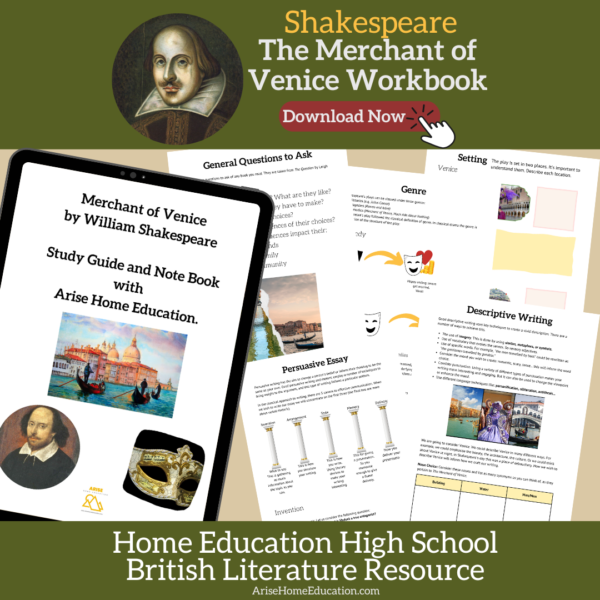


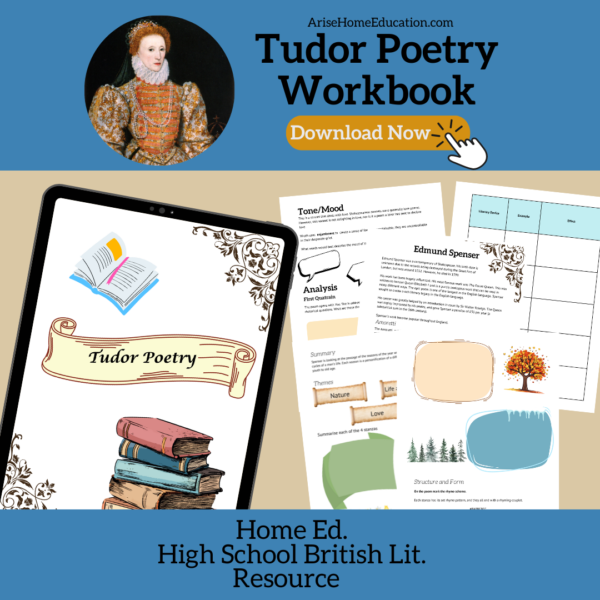
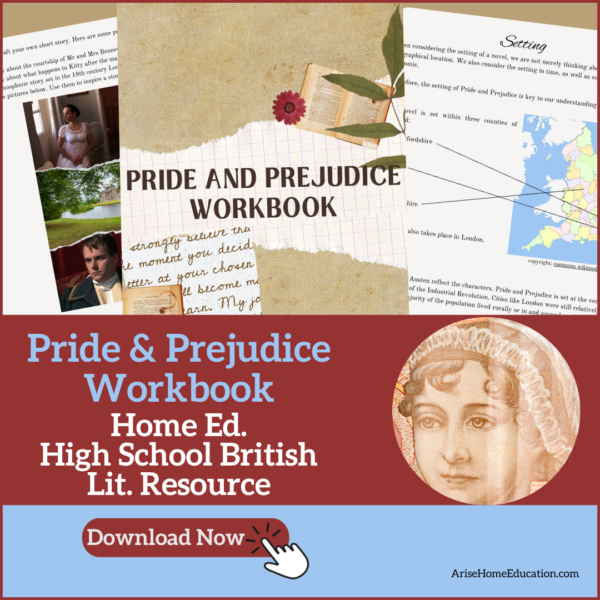
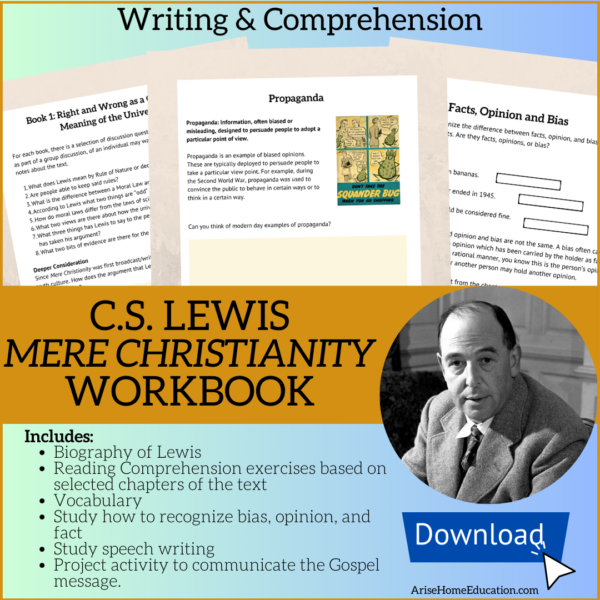
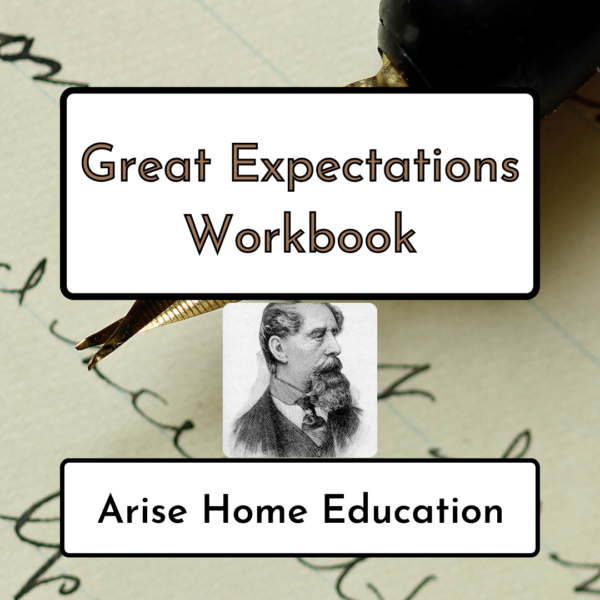
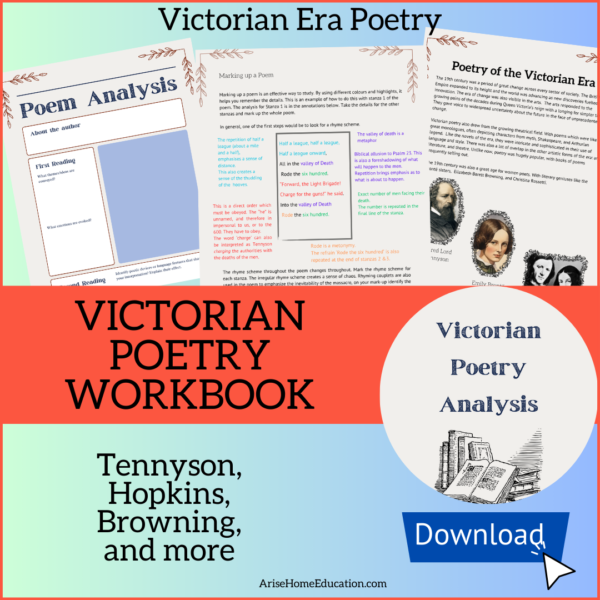
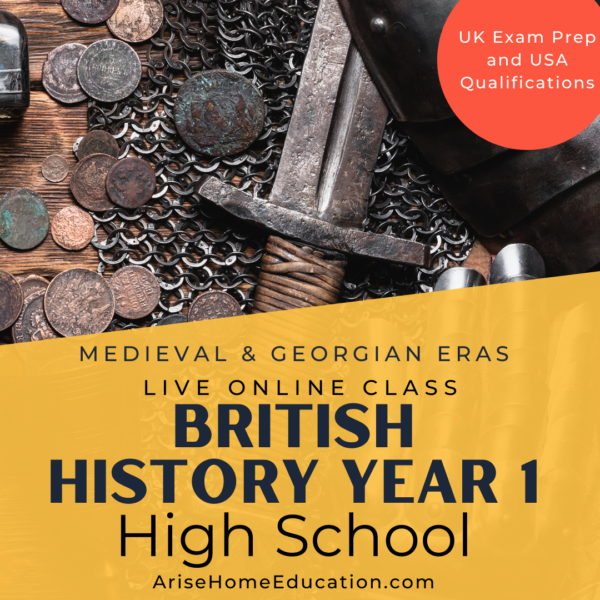
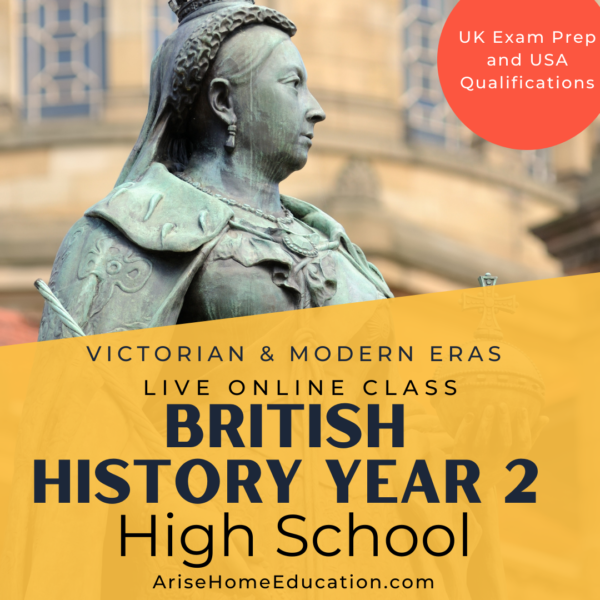

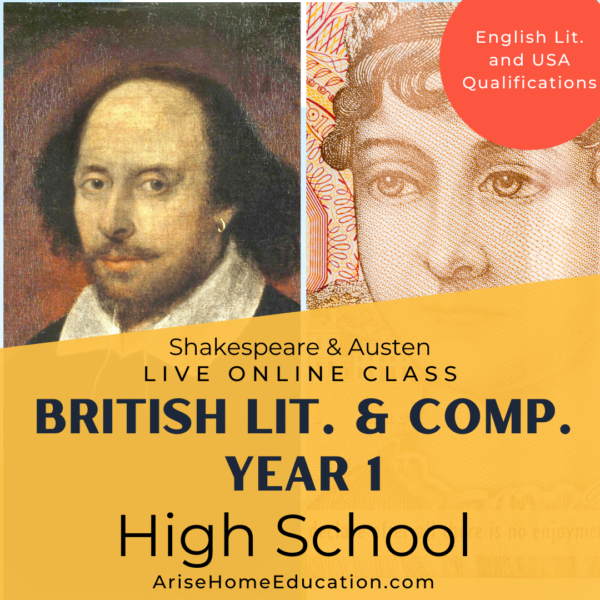
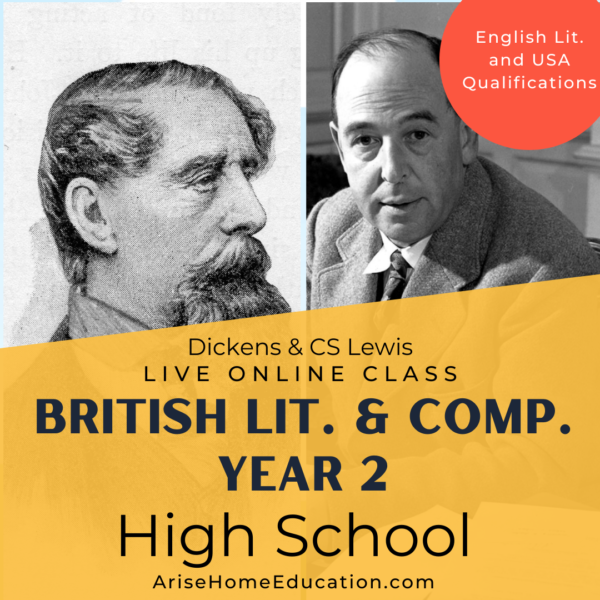
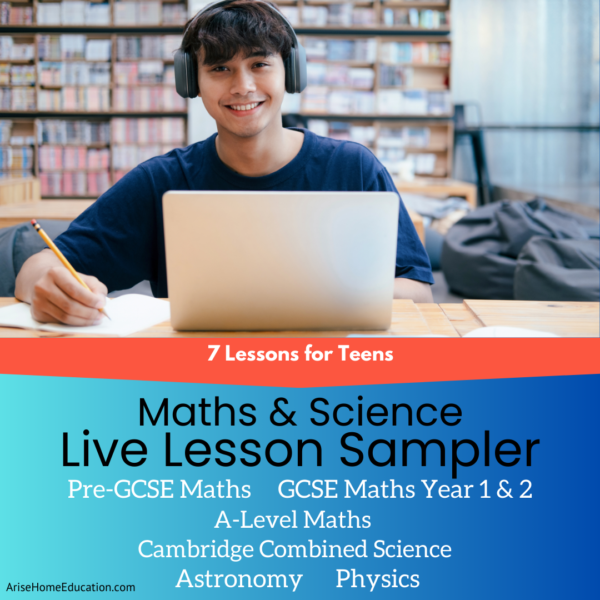
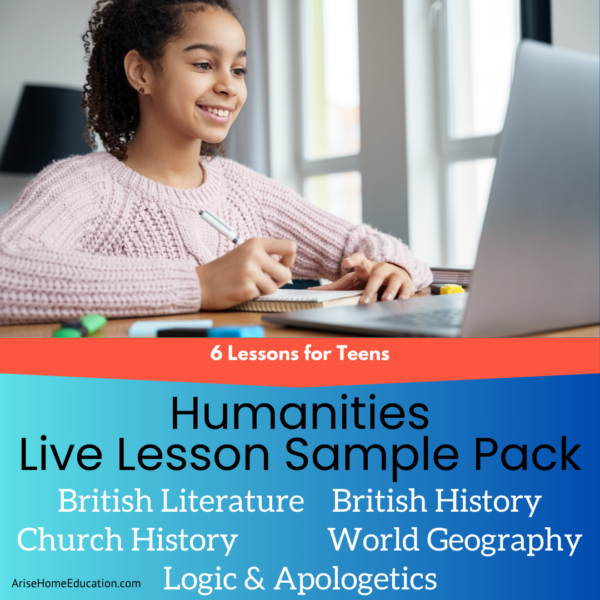
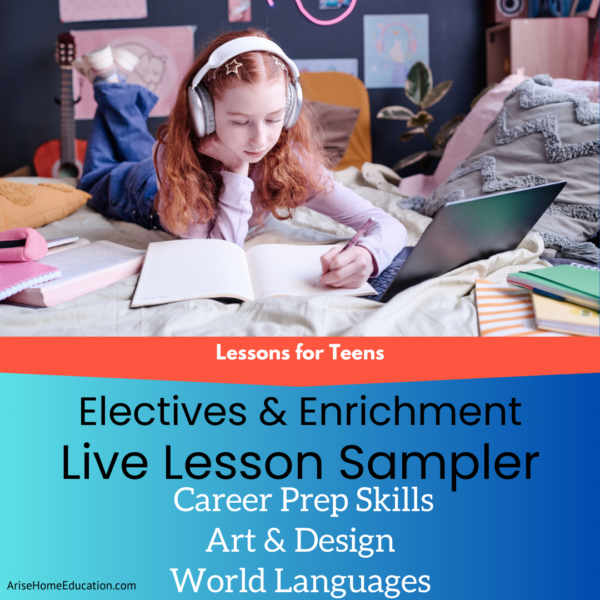

13 thoughts on “High School English iGCSE in Christian Home Education”
Comments are closed.